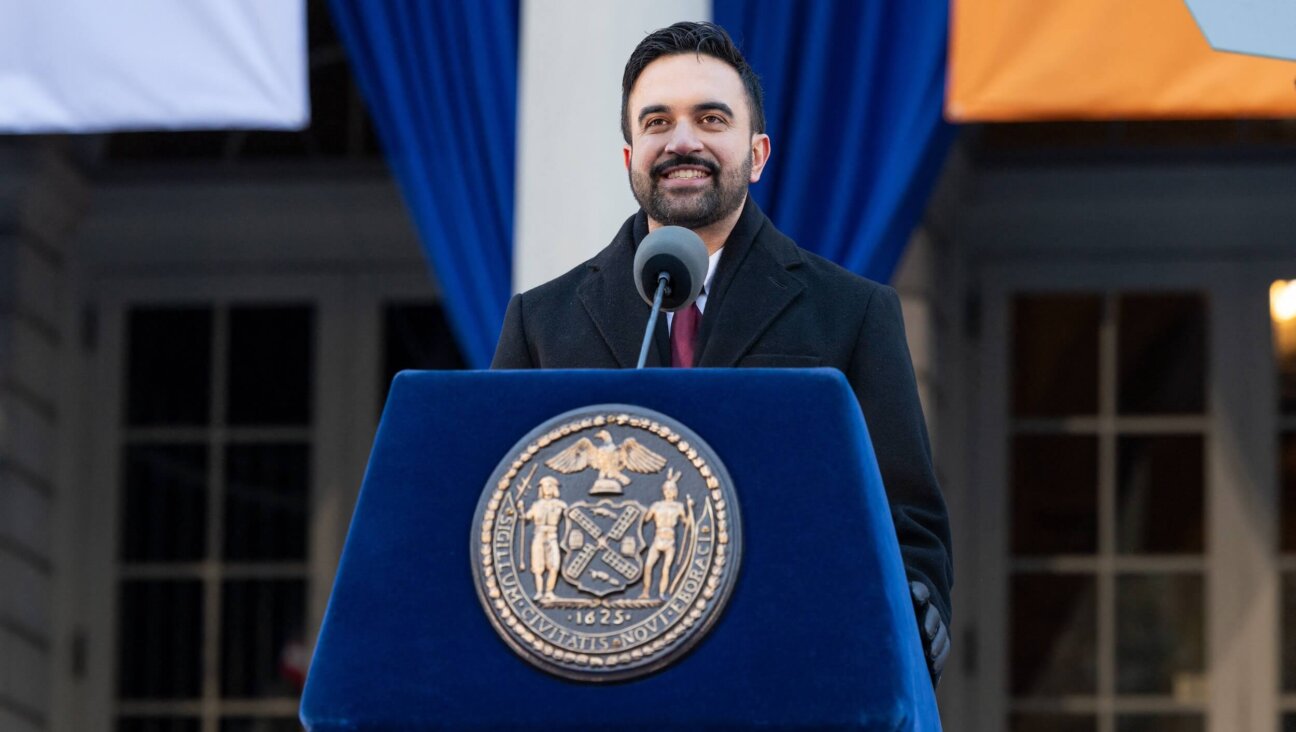J’lem Gets 1st Charedi Mayor
JERUSALEM — The accession to mayor of the United Torah Judaism Party’s Uri Lupoliansky, an ultra-Orthodox Jew, is underscoring the gains that charedim have made in the city during the last decade.
For many Israelis, Lupoliansky, who belongs to an extreme ultra-Orthodox sect and represents a non-Zionist party, serves as a symbol of those gains and the perceived troubles that have accompanied them: many secular Israelis have renounced Jerusalem and regard it as a foreign city. Notwithstanding the protestations that outgoing mayor Ehud Olmert made about Jerusalem being open on the Sabbath, and that secular Israelis never had as many entertainment venues in the capital as they do now, the general feeling is that the city’s secular population is dwindling.
Young secular Israelis are fleeing Jerusalem, few new secular Israelis are moving to the capital and The Hebrew University’s status among students is growing weaker. Secular Jerusalemites, living in neighborhoods completely isolated from ultra-Orthodox neighborhoods, often find themselves explaining time and again why they are still living in the capital.
The trend has alarmed many Israelis who consider it important to have secular Israelis living in Jerusalem. They believe that a reasonable number of Zionists should live in Israel’s capital, not least because the municipality’s budget comes from the secular population that pays taxes.
Many secular Israelis also distrust ultra-Orthodox reservations about the idea of a charedi mayor of Jerusalem, finding such protestations disingenuous. While some ultra-Orthodox have eschewed such a prominent role for one of their own in city government, many others have been dreaming for years that a charedi would attain such a post — a milestone achievement by any measure.
Lupoliansky quieted objections to his accession by protesting that he would only act as mayor until a new election is held to replace Olmert, who gave up his post after winning a seat in the Knesset and an expected senior ministry in the next government.
His protestations, however, ring hollow. In 1988, Lopoliansky refused to enter politics, agreeing only after his patron, United Torah Judaism leader Rabbi Yosef Shalom Elyashiv, “forced” him to run for the municipality. He has been in city politics ever since. It is reasonable to believe that Lupoliansky will also compete for the job of mayor on a permanent basis.
Jerusalem’s problem, however, is not Lupoliansky — it is hard to think of a better charedi representative than him, a moderate man who founded the Yad Sarah organization, which has become Israel’s main arm for distributing free medical equipment to sick people.
The problem is his political patron, Elyashiv, who is as conservative and zealous as Lupoliansky is moderate. Elyashiv represents a party that regards the political system as a lever for promoting the economic interests of the growing ultra-Orthodox sector — and it is anyone’s guess what kind of charedi leader may come along after Lupoliansky leaves office.














